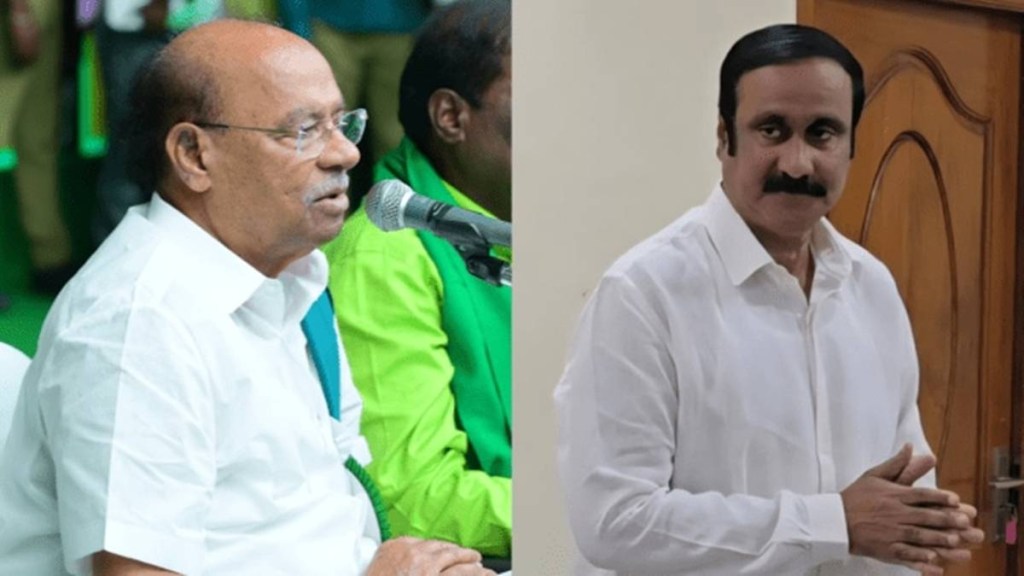Tamil Nadu’s regional political outfit Pattali Makkal Katchi (PMK) was thrown into turmoil on Thursday after its founder, S Ramadoss, announced the removal of his son, Dr Anbumani Ramadoss, from the party. In a directive to cadres, the veteran leader also instructed them not to maintain any contact with the former Union Minister.
Dr Ramadoss accused Anbumani of disregarding the advice of senior leaders as well as his own guidance. The sharp remarks mark the latest escalation in a bitter conflict that has been simmering within the party for months.
What do we know about the father-son tussle?
The rift between the two leaders has been widening since last year. While Dr S Ramadoss continues to assert that he is the duly elected president of the party under its constitution, a position he says is recognised by the Election Commission, his son has sought to assert his own authority.
Back in May, the senior leader launched a scathing attack on Anbumani, accusing him of obstructing the party’s growth and distancing him from grassroots workers. In a rare moment of regret, he admitted, “Honestly, the real mistake was mine. I made him a Union Minister so young, at just 35. But it was Anbumani who chose to escalate matters.”
Clashes over appointments
The discord deepened in December 2024 when Dr Ramadoss appointed his grandson Mukundan, through his daughter, to a senior position within the party. The move triggered an angry outburst from Anbumani during a general council meeting in Puducherry. He slammed a microphone on the table in protest, a moment Dr Ramadoss later said had “split the party in a second.”
The feud has since spiralled, with both leaders appointing and dismissing party functionaries independently, often in open defiance of each other.
Party divided
Last month, according to a PTI report, the PMK’s special general council passed a resolution reaffirming S Ramadoss as the founder–president. Yet the stalemate remains, with the father and son refusing to speak for months. Their loyalists, meanwhile, are split into rival camps, further weakening the party’s organisational strength.

